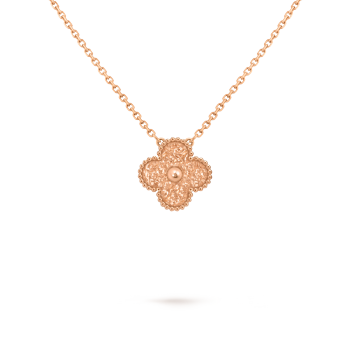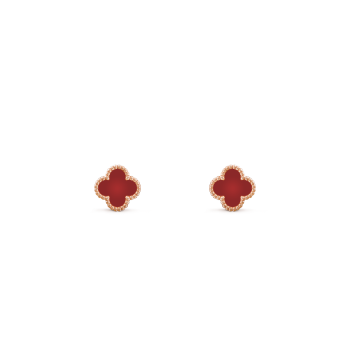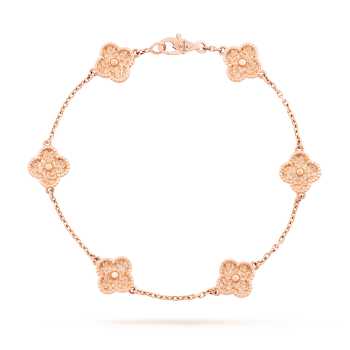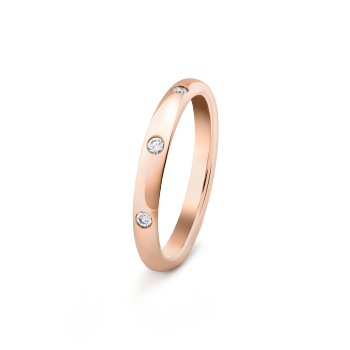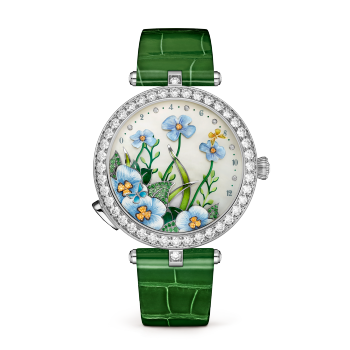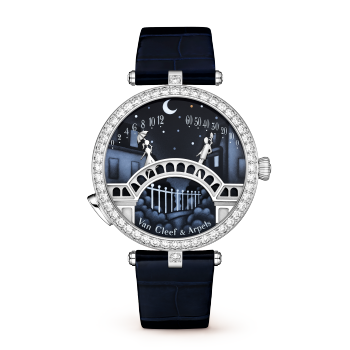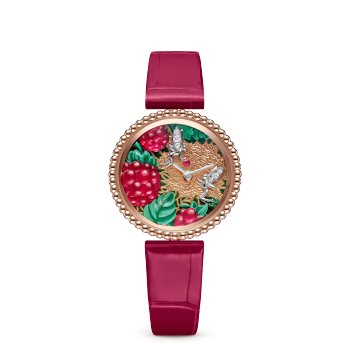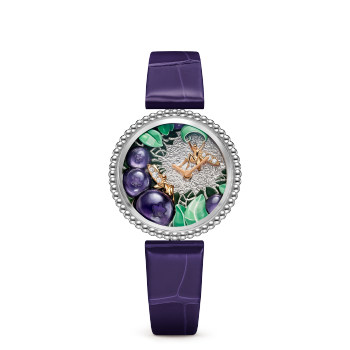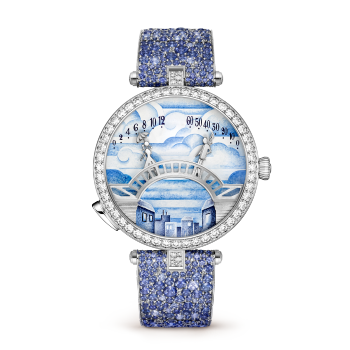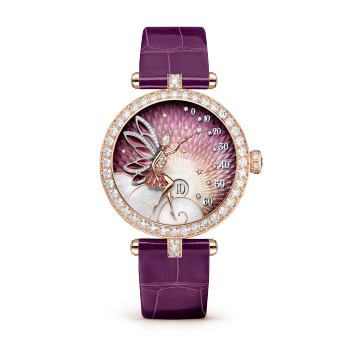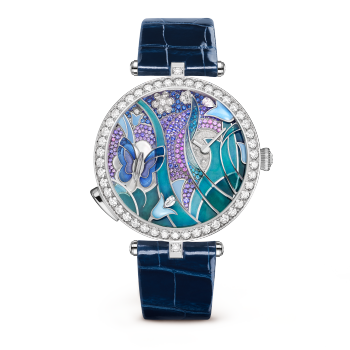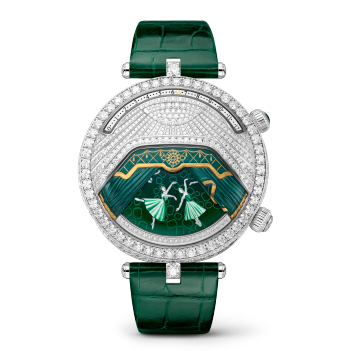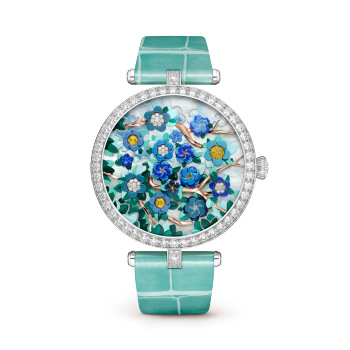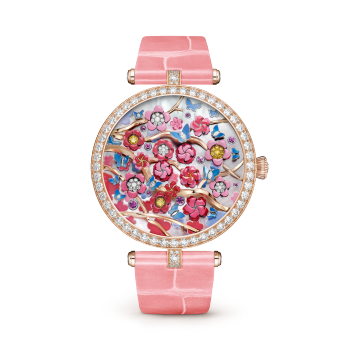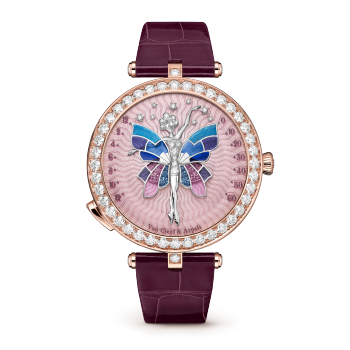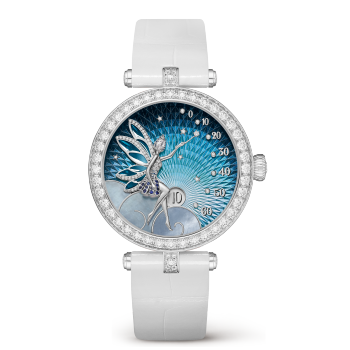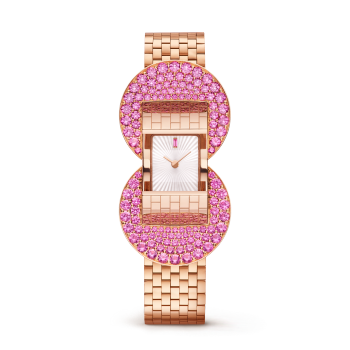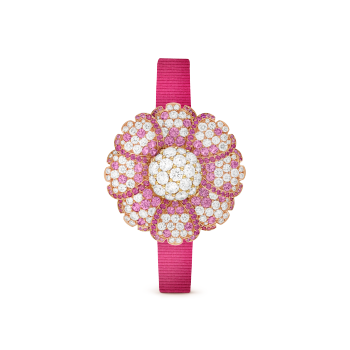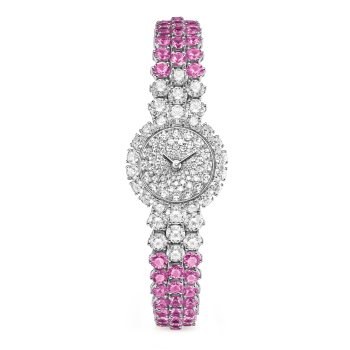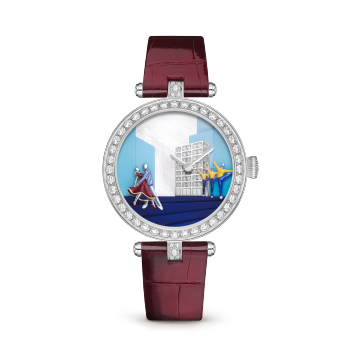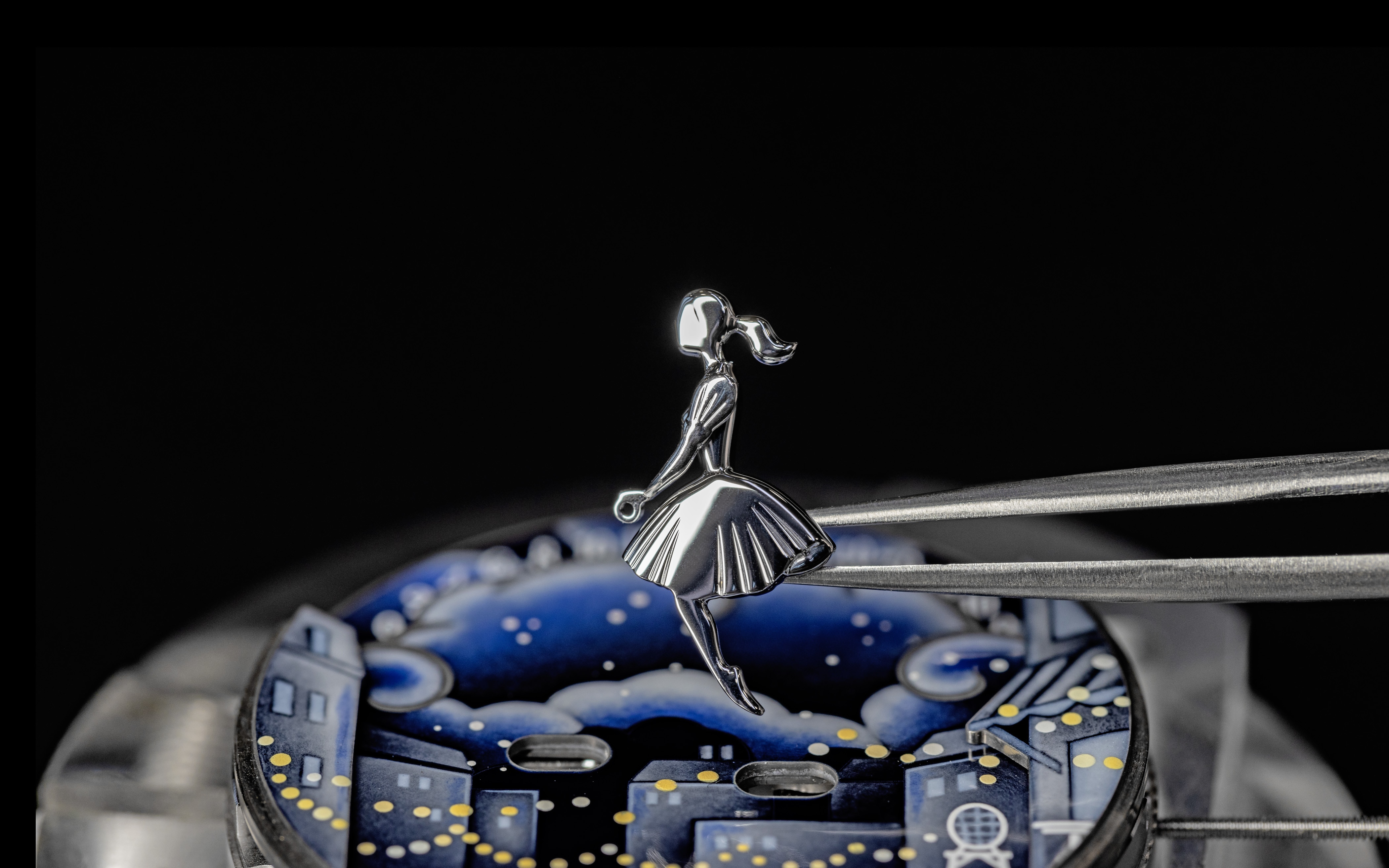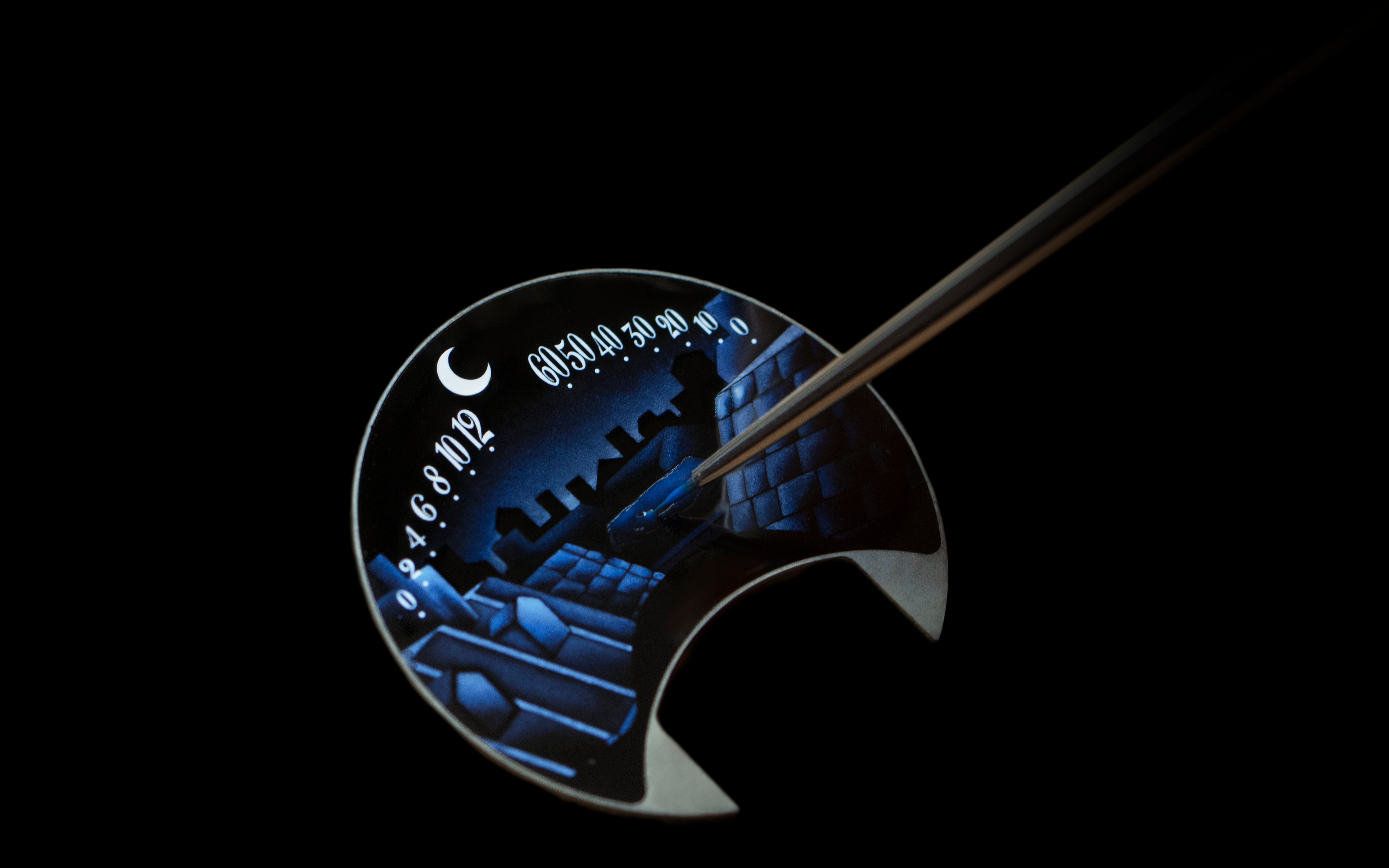
Métiers d'art enchant the hours
To elicit enchantment, Van Cleef & Arpels draws on its sources of inspiration, its heritage and the expertise of its workshops. With its training schools, the Maison perpetuates ancestral know-how and expresses its attachment to the values of creation and transmission. Enamel, miniature painting, marquetry of precious and ornamental stones, the art of engraving and sculpture... the métiers d'art are deepened according to the creations while new techniques are developed in the service of a distinctive vision of the passing hours.
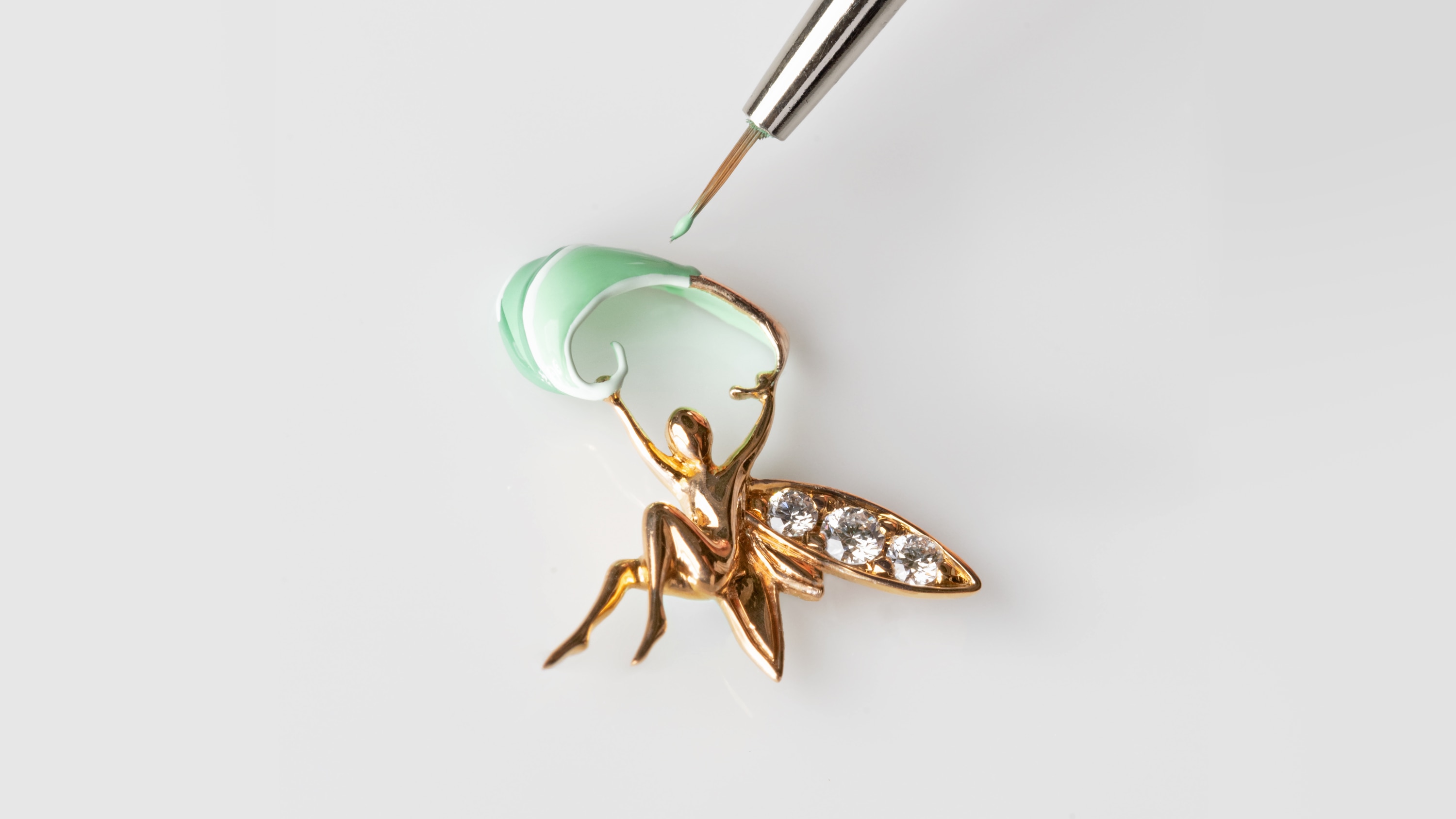
Painting a landscape, sculpting characters, making way for light to shine… By adorning a dial, craftsmen bring a story to life with precision. On the creations, the Maison's signature know-how combine to breathe poetry into timepieces.
The art of enamel
Within its Geneva Watchmaking Workshops, the Maison perpetuates and brings these know-how to life, in particular through an enamel workshop and a training school. Van Cleef & Arpels perfects traditional methods such as plique-à-jour or grisaille enamel. This technique, a hallmark of the Pont des Amoureux collection, allows for striking chiaroscuro effects.
Beyond these ancestral methods, Van Cleef & Arpels stands out for the development of innovative techniques, giving rise to three-dimensional décors. Each new challenge responds to the design imagined by the Creation Studio and sometimes requires several years of research and development. A dialogue is then born between science and art, technical requirements and stylistic intentions in the service of the story told by the watch.
Façonné enamel on the Perlée Extraordinaire Fruits Enchantés Framboise watch
The berries’ curved bodies and brilliant veneer of the Perlée Extraordinaire Fruits Enchantés Framboise watch are achieved by a technique of façonné enamel that was conceived and developed exclusively by Van Cleef & Arpels in 2023 for its timepieces. Enamel powder is gently poured into a mold and then fired twice according to precise temperature profiles. The full process creates a striking visual effect that merges volume and transparency.
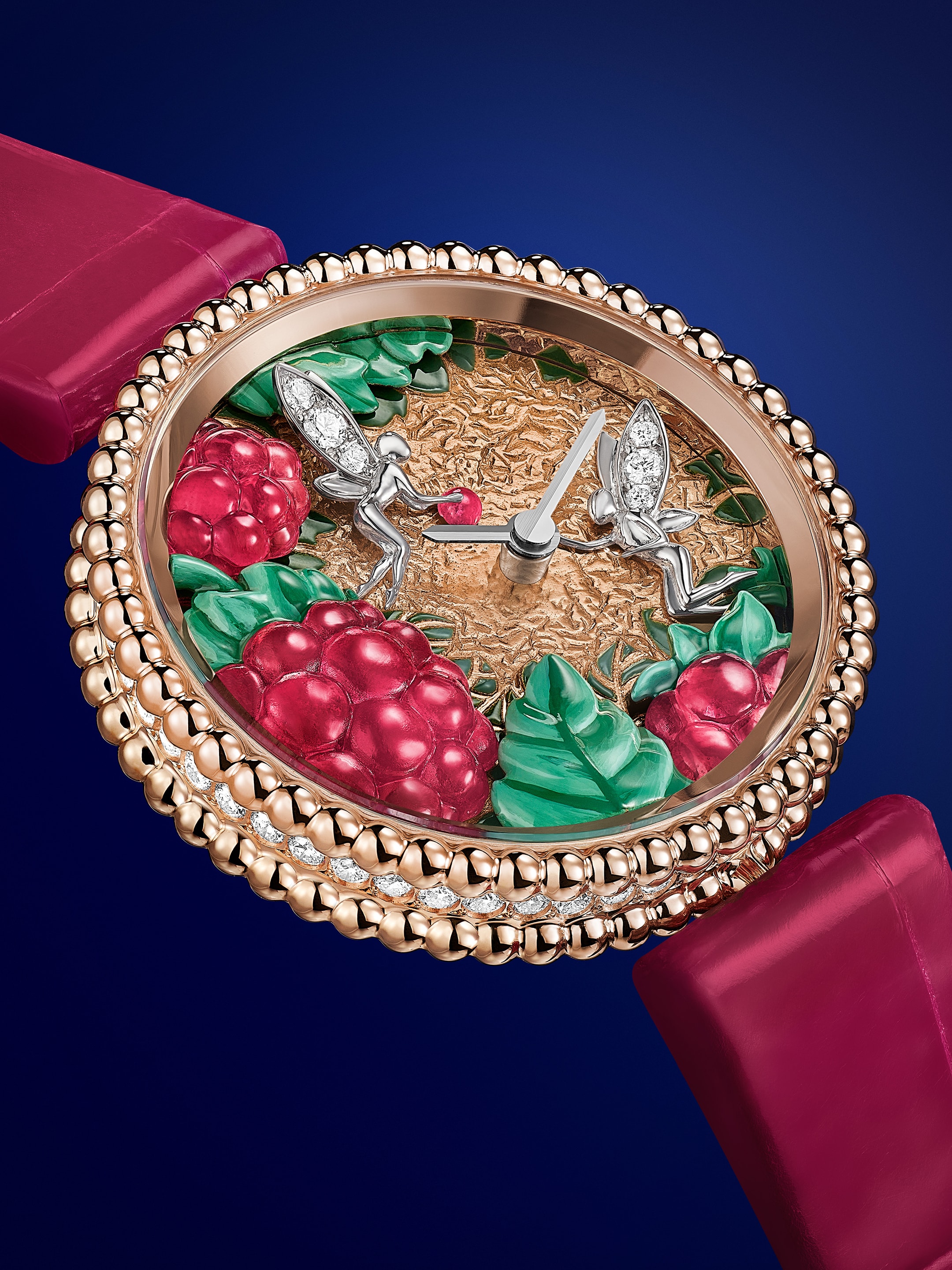
The enameled motifs come to life through a succession of steps, giving each piece intense colors and a lively shine. Champlevé, vallonné, façonné or even setting in enamel combine to breathe life into the stories told by the dials.
The art of miniature painting
Miniature painting is an age-old technique which dates back to Antiquity and has made artists famous since the Middle Ages. Just as the painter has his palette, the enameler has colored enamels composed of silica powder, very finely ground pigments and oil. On the watches, the craftsman or painter wearing a binocular applies the color using a fine sable hair brush, gradually creating shapes and gradients of shades.
The colors are placed one by one, in a very precise order, from the lightest to the most intense tones. Each of them is associated with a specific firing, the temperature and duration of which remain the secret of the master enameler. If the drawing, executed freehand, requires precision, dexterity and a real talent as a painter, each stage of firing requires great attention to detail.
Miniature painting on the Lady Arpels Ballerine Musicale watch
On the Lady Arpels Ballerine Musicale Émeraude watch, sculpted, engraved and hand-painted draperies seem to part to reveal aerial ballerinas in miniature painting. The result of 72 hours of work, this technique gave life to real miniature works and allowed to adjust the volume of the disc and make it lighter.
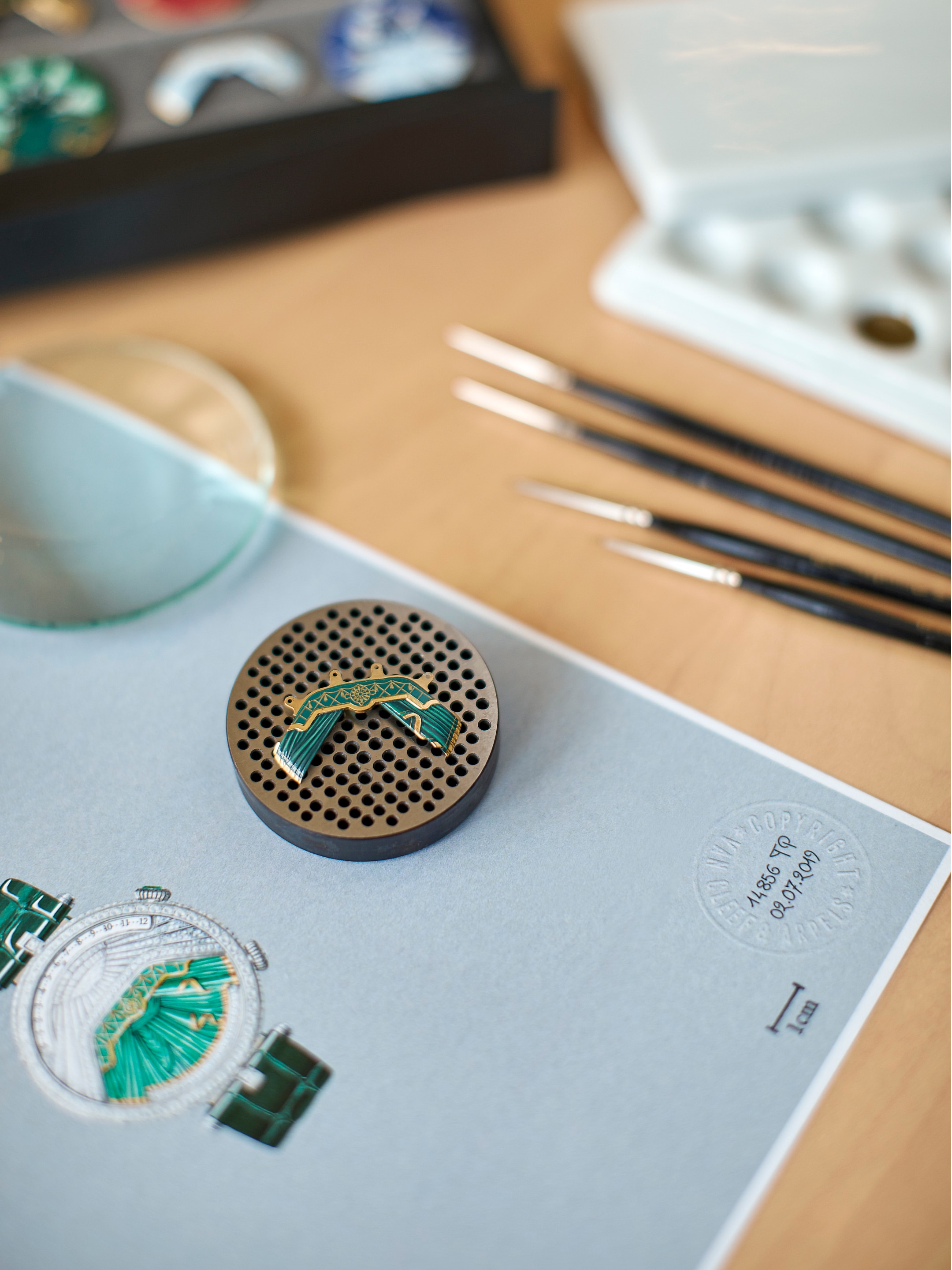
The art of sculpting and engraving
The art of the sculptor consists of making a figure emerge from a block of material - gold, mother-of-pearl or even ornamental stones - and giving it life. To work on each material, play on their appearance, highlight their reflections, create a velvety feel, the craftsman measures it first with his eyes then with his hand. Sculpture allows for a dial to be adorned or for a case back to be enhanced with effects of depth and relief.
The know-how of the engraver is measured as much by his technique as by his ability to breathe volume, depth and life to his work. On metal, mother-of-pearl or ornamental stones, it contributes to the poetry of the story told by each timepiece.
The sculpture and engraving on the Lady Arpels Ballerine Enchantée watch
Depicting a female figure, the Lady Arpels Ballerine Enchantée watch reveals the ballerina’s body sculpted in relief in gold, while her headdress, face, bust and waist are suggested by diamonds. She stretches her arms out gracefully, above the veils of her tutu, which are superimposed with an effect of transparency.
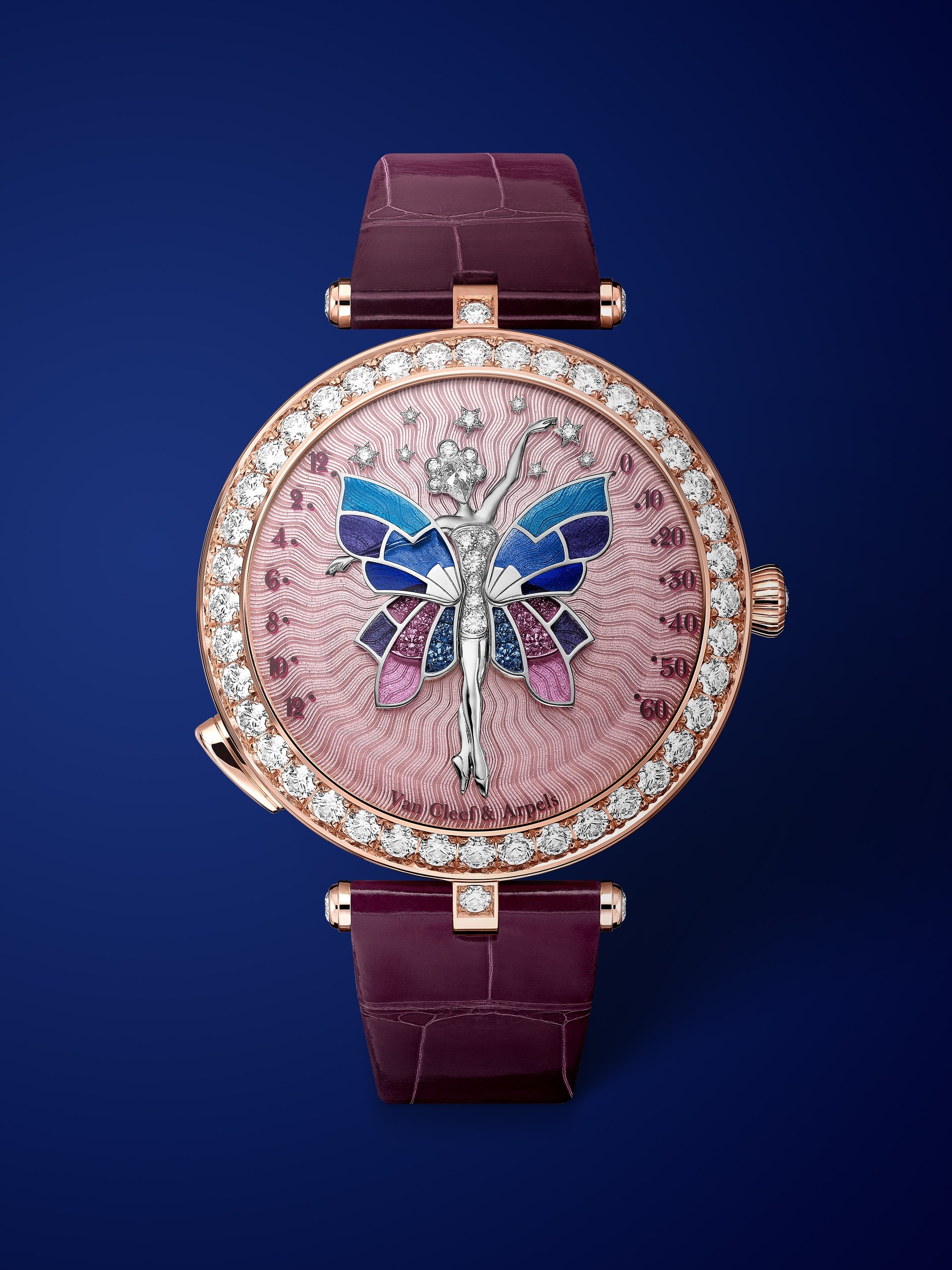
Swipe to discover
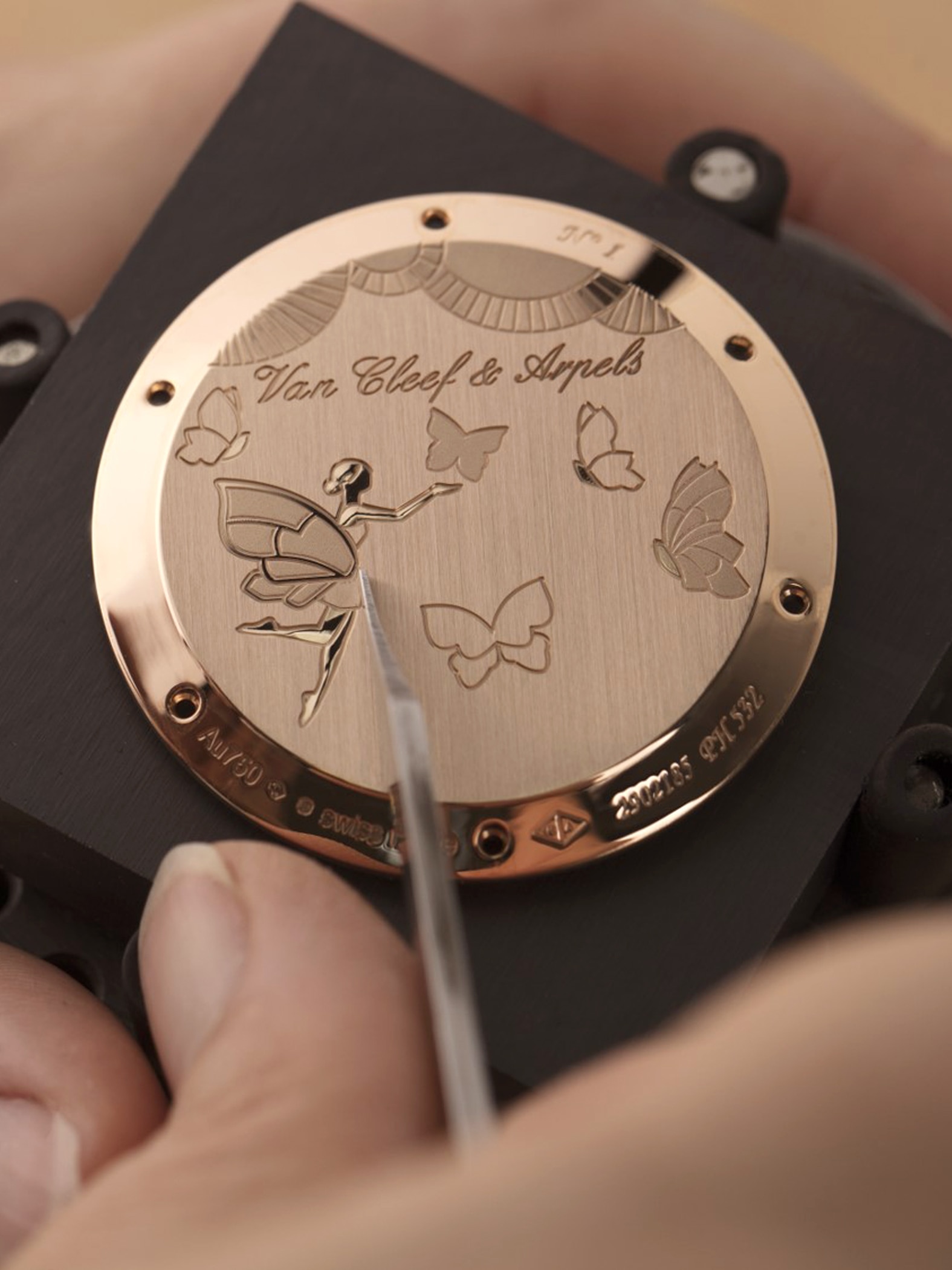
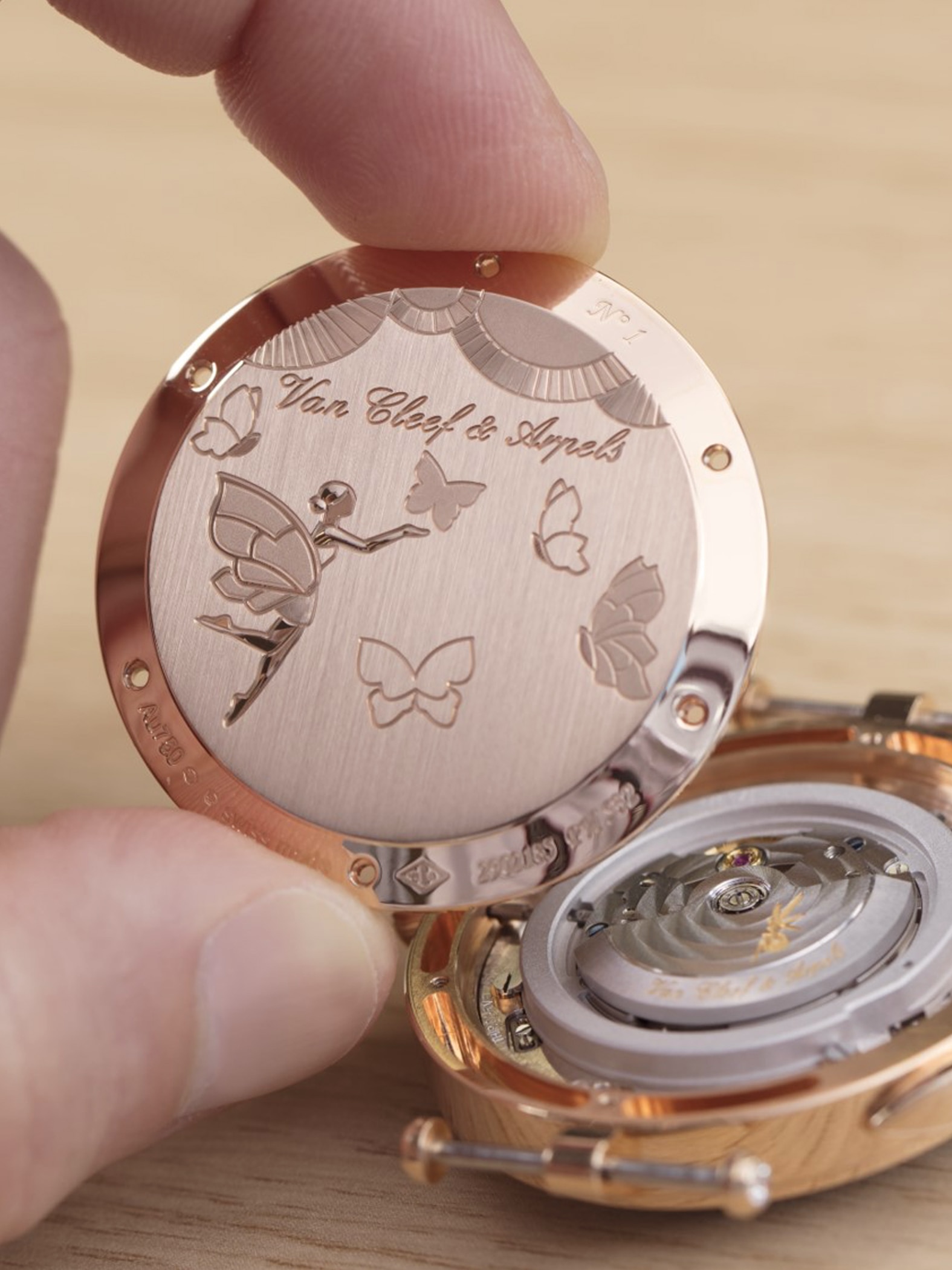
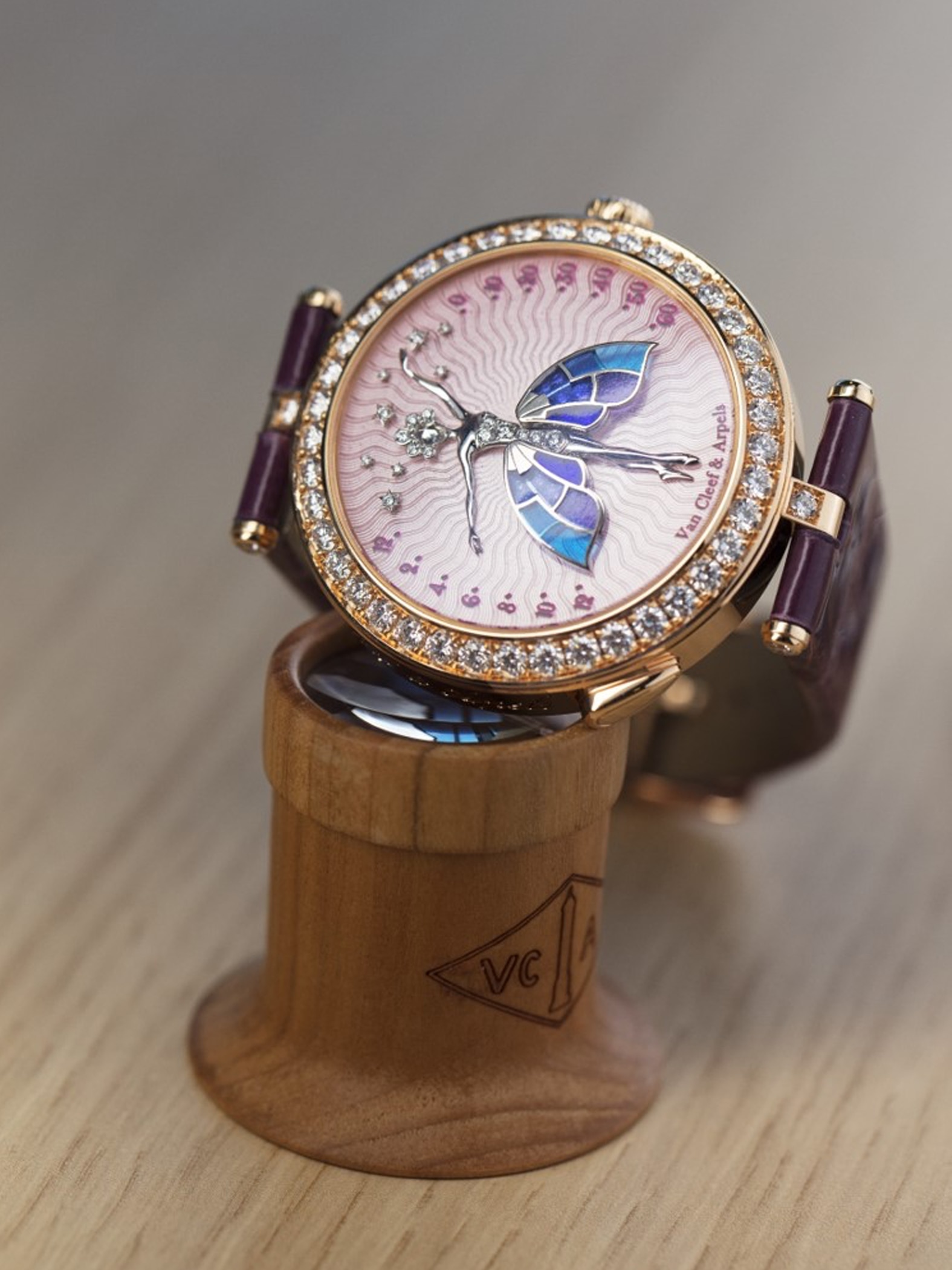
On the back of the watch, an engraved scene revisits the graphic lines of the dial, prolonging the spectacle of the dancer.
The art of stone-setting and the art of mother-of-pearl and ornamental stones marquetry
The role of the stone-setter is to embed the stones in the precious metal and to highlight them. They must therefore be maintained while making the frame disappear as much as possible. Depending on the design and the stones, the setter applies different setting techniques: prong, grain, closed, lifted or even rail.
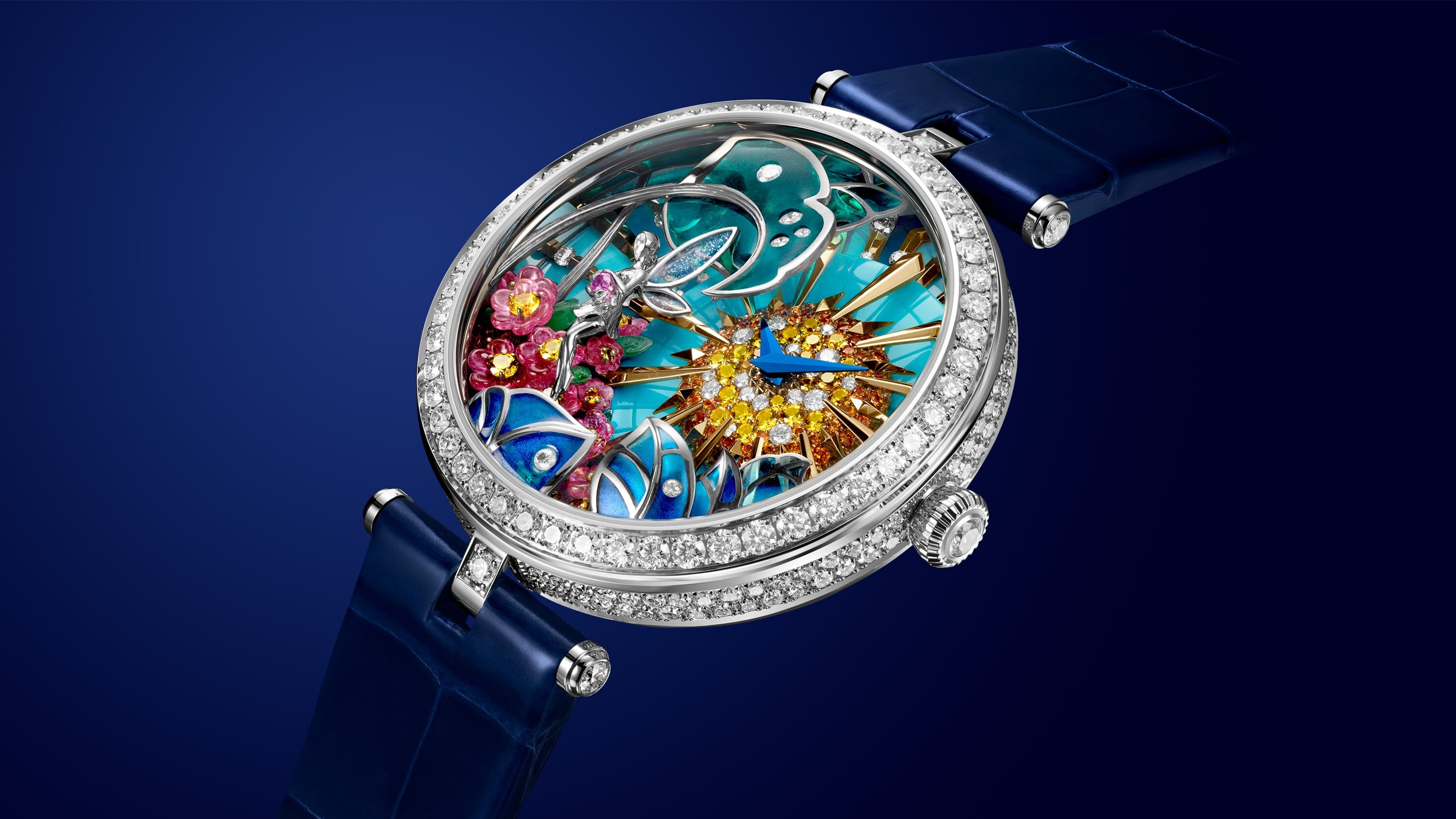
Meanwhile, the marquetry craftsman showcases gems in subtle compositions. To form a pattern, the stones or mother-of-pearl are carefully selected according to different criteria: hue, hardness, surface quality and opacity. Marquetry then requires great expertise to shape the different components of the decor. Gems are individually cut and polished by hand.
Lifted setting and turquoise marquetry on the Lady Arpels Jour Enchanté watch
Illuminating the background of the Lady Arpels Jour Enchanté watch, the sun is highlighted by precious stones: spessartites, yellow sapphires and diamonds. On its rays, diamonds seem to levitate thanks to the lifted setting technique. The latter, developed by the Van Cleef & Arpels Watchmaking Workshops, gives the stones the illusion of being suspended without visible support, like dewdrops.
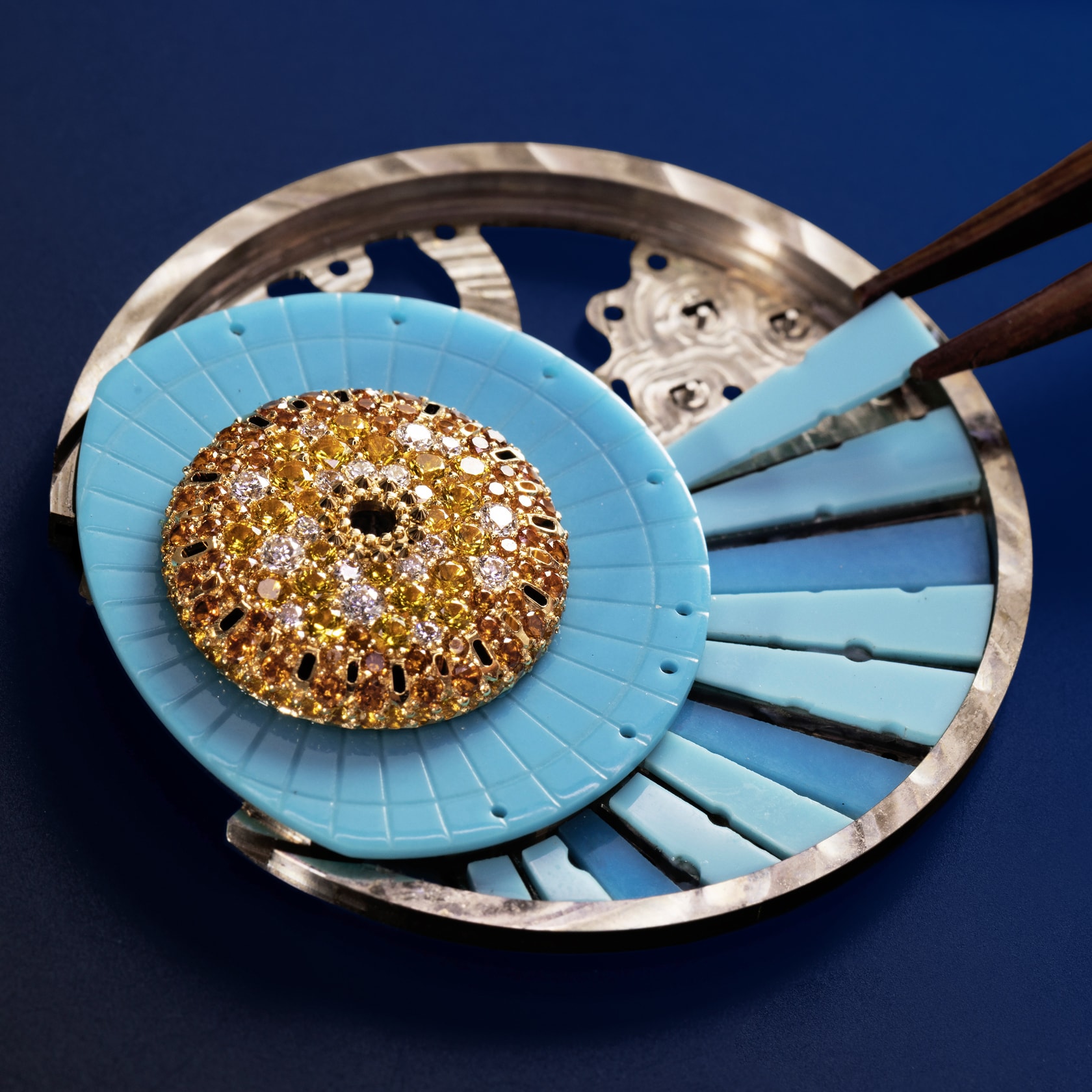
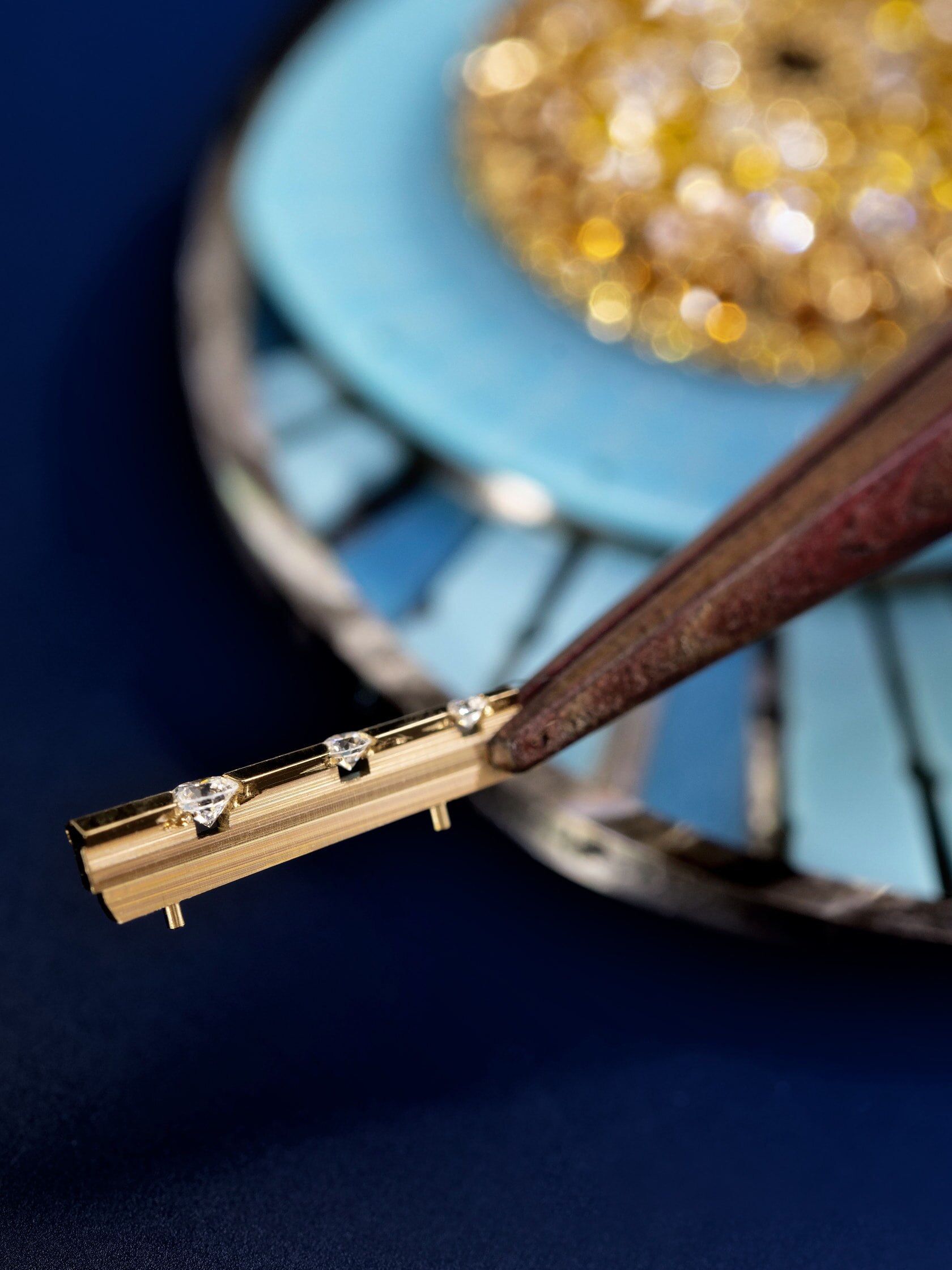
This scenery takes place against a sky in three shades of turquoise. Reflecting the Maison's tradition of excellence, the lapidary's work begins with the selection of a series of blocks of turquoise which meet the highest criteria and respond to the needs of the piece, particularly in terms of shapes and colours. Then, a real puzzle is created in order to translate the dial design as faithfully as possible. Here, turquoise has been cut to evoke the different tones of a sky at sunrise.
The precious decors comes to life
